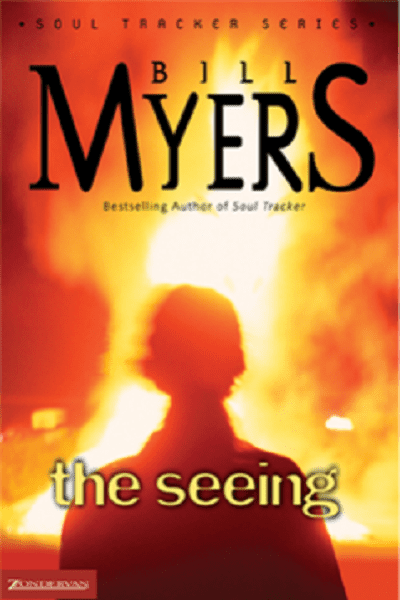The Seeing
Publisher: Zondervan
ISBN-10: 0310242371
ISBN-13: 978-0310242376
About the Book
Book 3 of the Soul Tracker series
An evil presence looms over the desert community. Native American legend calls it Tahquitz. The new casino operators call it an opportunity to make money…
Young Luke Kauffmann acquires a pair of strange goggles that gives him glimpses into dimensions around him, where dark, sinister forces exert their powers to influence—and glimmering creatures of light strive to stop them.
Thanks to the help of a beautiful but quirky techie, Luke increases the power of the goggles until he is thrust even deeper into the spirit world. With their added strength and the help of others, darker secrets are soon uncovered until Luke himself is seduced by the power and pride that the goggles offer.
It isn’t until the final showdown at Tahquitz’s very lair that Luke and his colleagues learn the deeper truths of spiritual warfare that enable them to destroy the creature’s sinister hold upon the valley.


